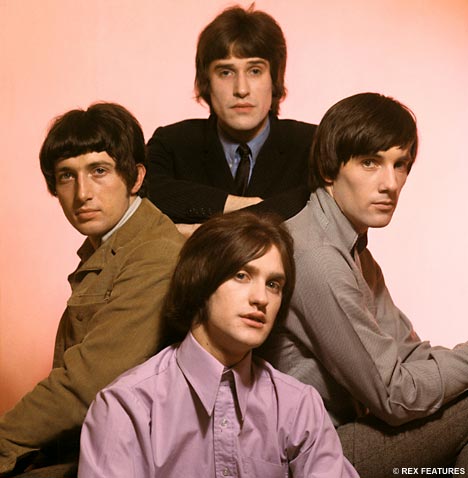Well, I eventually got around to it, right?
----------------
Quite simply put, the Kinks have always been the odd man out. When you look at the big boys in the British Invasion, you have to include the Kinks in the same group as the Beatles, the Stones, and the Who (at the very least because of "You Really Got Me"). But when the invasion had, for all intents and purposes, stagnated, where did they all look to for inspiration? The Beatles looked to India and all over, the Stones delved even more into the American rhythm and blues, and the Who went for broke by creating modern rock operas. The Kinks, however, looked back towards where they came from: England. This was particularly odd, because so much of the 1960s was predicated on the new and looking for new things, bigger and better things. But to use England for inspiration was decidedly the opposite: they drew their inspiration on the old and the familiar (and for all intents and purposes, the dying) to create (still, folks...still) some of the best music out there today.
I'm not really going to consider much of their British Invasion period. Great? All I can say is "duh." But it's the British Invasion, and it's been beaten to death by others, and I'm not going to beat it to death unless I feel like doing something futile. I did however, want to consider the aftermath: to see how bands reacted to a virtually post-apocalyptic landscape is far more interesting and telling (and at least to me, I certainly prefer the post-Invasion music, period).
Some say that Ray Davies searched for his new identity in the old, familiar, "smaller" and "common"as a result of the stress that being in the Kinks necessarily entailed (I use quotes here to imply that while perhaps the descriptors can be used, they are not always completely accurate). It also was, of course, the opposite response of almost every other British Invasion band: the rest went for newer, bigger, and "better" (I use quotes here because newer quite obviously did not imply better...but that was the idea behind their transformations). But the Kinks forged an identity consisting of old England, of times leaving and dying, of the common people all around, and created some of the most poignant, catchy, and satisfying music ever. Case in point:
In many ways, the Kinks are the Village Green Preservation Society was to the Kinks as Sgt. Pepper's Lonely Hearts Club Band was to the Beatles...their apex, their brightest moment in the history of rock music and quite obviously a concept album. But, of course, both are quite different. Sgt. Pepper was a record based in timelessness, without any "home," made from the universe and one with it (so to speak). VGPS was a record steeped in the time period, lamenting the passing of old England as it made way for a new one. I'm not saying that VGPS is quite nearly as good as Sgt. Pepper, but the distance is closer than one would normally think. I currently do not remember where I rank the album in my own personal top 30 list, but chances are I ranked it far, far too low.
The Kinks are the Village Green Preservation Society is a stone cold classic. This album is a "lighter" one with very few (if any) tracks that could be considered "heavy," but instead of creating imbalance, it creates balance. Instead of making it hard to believe the Kinks, it lends authenticity to their treatment of the concept. But it still is a rock record and it's brilliant. From the twinkle that kicks off the record (the title track), the "oohs" and "aahs" that punctuate "Picture Book," the music hall that marks "Starstruck," and the overall sense of nostalgia that permeates the record, such as the laments of the passing of the few remaining customs that older England had held onto ("Last of the Steam-Powered Trains" is particularly indicative) that makes the record so good. The record is wistful, witty, poignant, and moving, all at the same time.
The Kinks were always good at that sort of stuff. Of all the British Invasion Bands, they were probably the smartest, and were just as good as any other band at the time. They just chose to look in a different direction. Perhaps there is a slight chance that I overvalue the Kinks: after all, I spent six months abroad in London, and though London epitomizes the culture that the old England gave way to...they're the most British band I know. But don't let that get in the way of the music of the Kinks, because the music carries so much meaning and worth that letting any preconceptions cloud your trip through the Kinks would be a disservice.
Monday, January 17, 2011
Subscribe to:
Posts (Atom)





